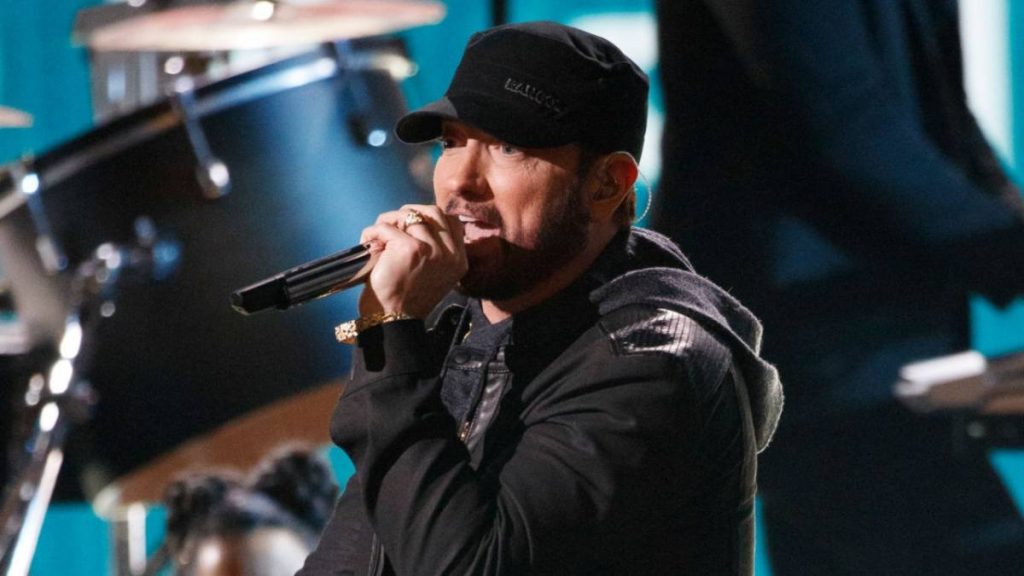Eminem Describes 'Therapeutic' Nature Of Rapping About Mental Health & Addiction

Shady Records artist Westside Boogie delivered his second album for the imprint on June 13. Titled More Black Superheroes, the project included contributions from Snoop Dogg, Soulja Boy, Shelley (f.k.a. DRAM), Smino, Teezo Touchdown, Kalan.FrFr and Mamii.
In an effort to promote the project, label co-founder Eminem joined Boogie for a recent interview with Shade 45’s Sway In The Morning where he discussed a bevy of topics, including mental health. When asked how rapping about mental health and addiction “transformed” him, Shady replied, “Well, I think that’s, that’s one of the great things about rap music is that, you know, you could put so much of your life in it. I was just trying to figure out how to expand on that and I kinda got lost.”
He continued, “It’s therapeutic and it’s, you know, that’s how it’s always been for me. But with this album, with this new Boogie album, the, the title, everything is fucking, everything’s great. And it’s like, you know, watching him, watching him just keep getting better and better and better is incredible too. And he’s got so much of his life weaved in this album. You know what I’m saying? Like, I think that it’s like, it’s therapeutic.”
Eminem has been incredibly vocal about his struggles with substance abuse in the past. Now with 14 years of sobriety under his belt, he doesn’t shy away from the topic nor is he afraid to talk about it.
In a 2015 interview with Men’s Journal, he discussed his six-year addiction to a deadly combination of prescription drugs, including Ambien, Valium and extra-strength Vicodin. Although he attempted to quit in 2005, the murder of his friend Proof sent him spiraling. Eminem wasn’t able to stay clean until he nearly died from a methadone overdose in late 2007.
“In 2007, I overdosed on pills, and I went into the hospital,” he said. “I was close to 230 pounds. I’m not sure how I got so big, but I have ideas. The coating on the Vicodin and the Valium I’d been taking for years leaves a hole in your stomach, so to avoid a stomach ache, I was constantly eating and eating badly.”
Eminem still references his battle with addiction in his music, especially on the 2010 album Recovery. Earlier this year, Recovery was certified 8×-platinum by the Recording Industry Association of America (RIAA), becoming Eminem’s third best-selling studio album behind The Marshall Mathers LP (2000) and The Eminem Show (2002).


